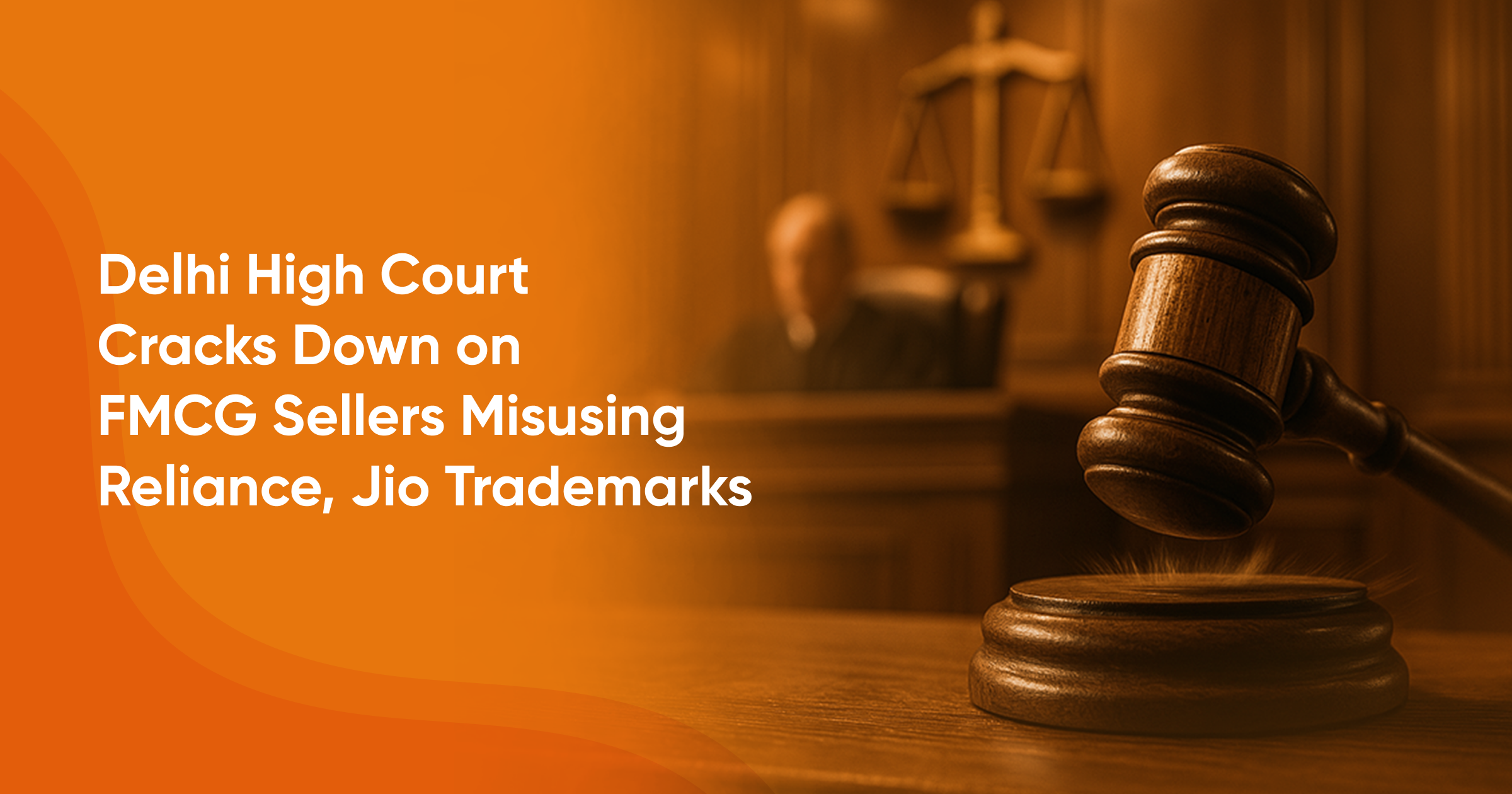Imagine buying a product online, thinking it’s from a trusted brand, only to find it’s fake. Sounds frustrating, right? That’s exactly what happened when sellers misused Reliance and Jio trademarks. The Delhi High Court stepped in with a strong order. It stopped the fake sellers and warned online platforms like Amazon and Flipkart. The case highlights how fast brands need to act to protect their identity, and how the law supports them.
What Sparked the Legal Action?
The misuse of registered trademarks prompted Reliance Industries to take legal steps against deceptive sellers. Reliance Industries Ltd. (RIL), a major player in the fast-moving consumer goods (FMCG) sector. In June, the company discovered that certain sellers were marketing and selling products under the "Reliance" and "Jio" trademarks. This includes poha, pulses, wheat flour, foxnuts, and salt. These trademarks, adopted in the 1960s and 2011, respectively, are not just legally registered, they carry decades of brand equity.
According to the lawsuit, these products were being listed on major e-commerce platforms. Hence, giving the impression that they were officially manufactured or endorsed by Reliance.
Court’s Firm Stand on Trademark Violation
The judge emphasized the risk of consumer confusion and took a strict view of the imitation. Justice Saurabh Banerjee, while passing the interim order, stated that the sellers had imitated RIL's trademarks “in whole,” which could easily mislead unaware customers. He emphasized that such imitation on digital platforms is especially dangerous because online buyers rely heavily on brand logos and names to determine product authenticity.
The court issued an injunction restraining the sellers from producing, promoting, or selling any FMCG products using the "Reliance" or "Jio" marks until the next hearing scheduled for November 13. In addition, Amazon, Flipkart, and other e-commerce platforms were instructed to share complete seller information with the court.
Why Brand Identity Matters in E-Commerce
Online consumers trust names and logos; any misuse can lead to loss of reputation and consumer trust. In his order, Justice Banerjee pointed out that the layout, packaging, and branding of the defendants’ goods were likely to confuse the average consumer. Given the growing popularity of Reliance’s FMCG segment, including online grocery and fresh produce, the danger of misleading buyers was very real.
Consumers often do not get to physically inspect products before purchase in the digital world. Therefore, branding acts as the primary cue for origin and quality. Misuse of trademarks can mislead buyers, erode consumer trust, and damage the brand’s credibility.
A Wake-Up Call for Online Sellers and Platforms
This case is a loud and clear warning for online sellers who attempt to ride on the popularity of established brands. The court’s direction for disclosure of seller details also puts added responsibility on marketplaces like Amazon and Flipkart to ensure compliance and maintain transparency.
Online platforms are expected to take proactive steps to prevent trademark violations, especially when dealing with well-known brands that enjoy widespread public recognition.
Legal Support Is Just a Click Away
This court order underscores the importance of vigilance for brands and the need for sellers to act ethically. Misusing trademarks is not only illegal, it’s a serious threat to consumer trust. With increasing e-commerce activity, ensuring brand protection becomes even more important. We at Trademarkia ensure businesses don’t have to fight this battle alone. Our attorneys are here to help you every step to protect your brand identity. After all, every brand deserves to be recognized and respected, without the risk of impersonation.

